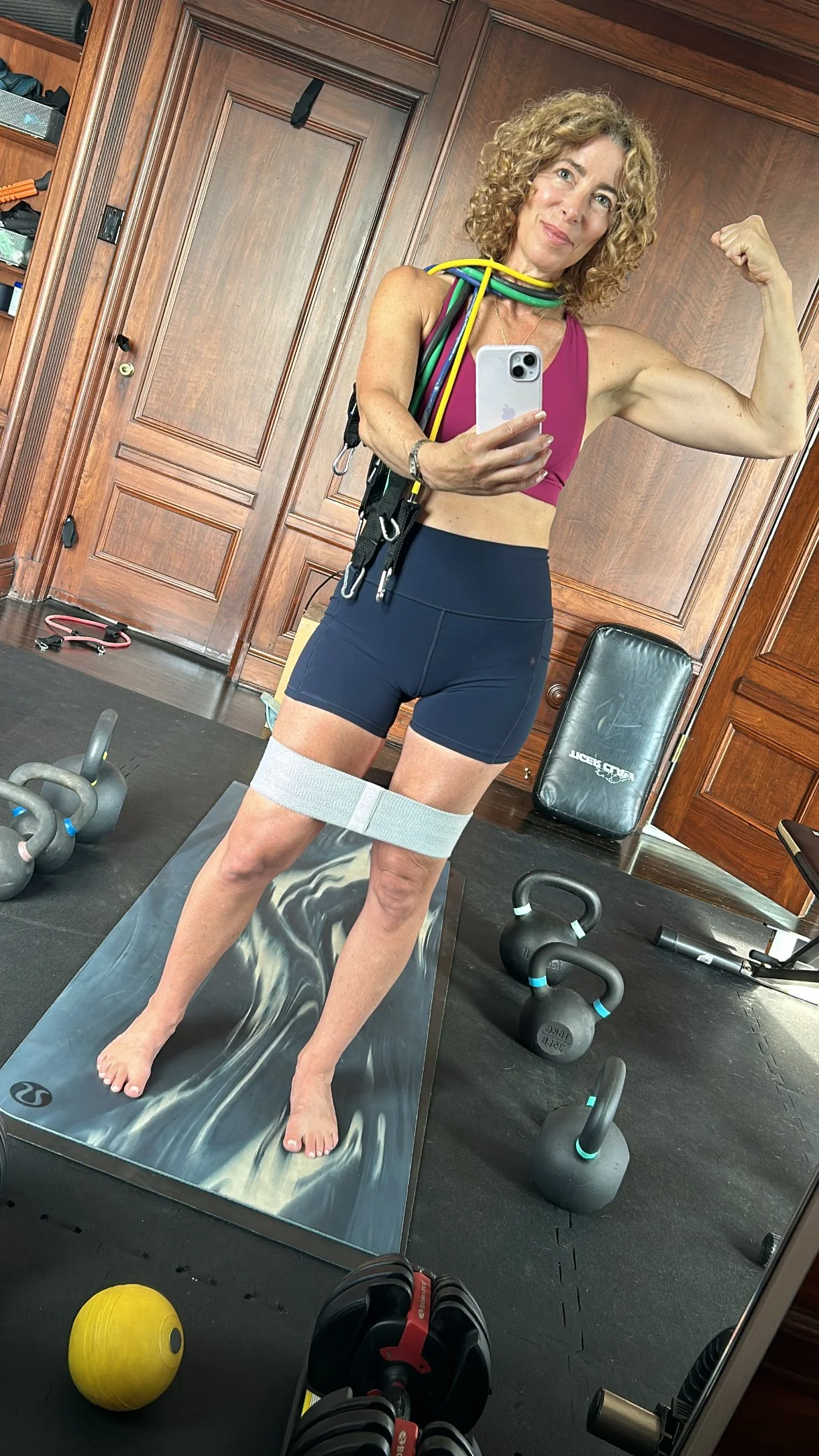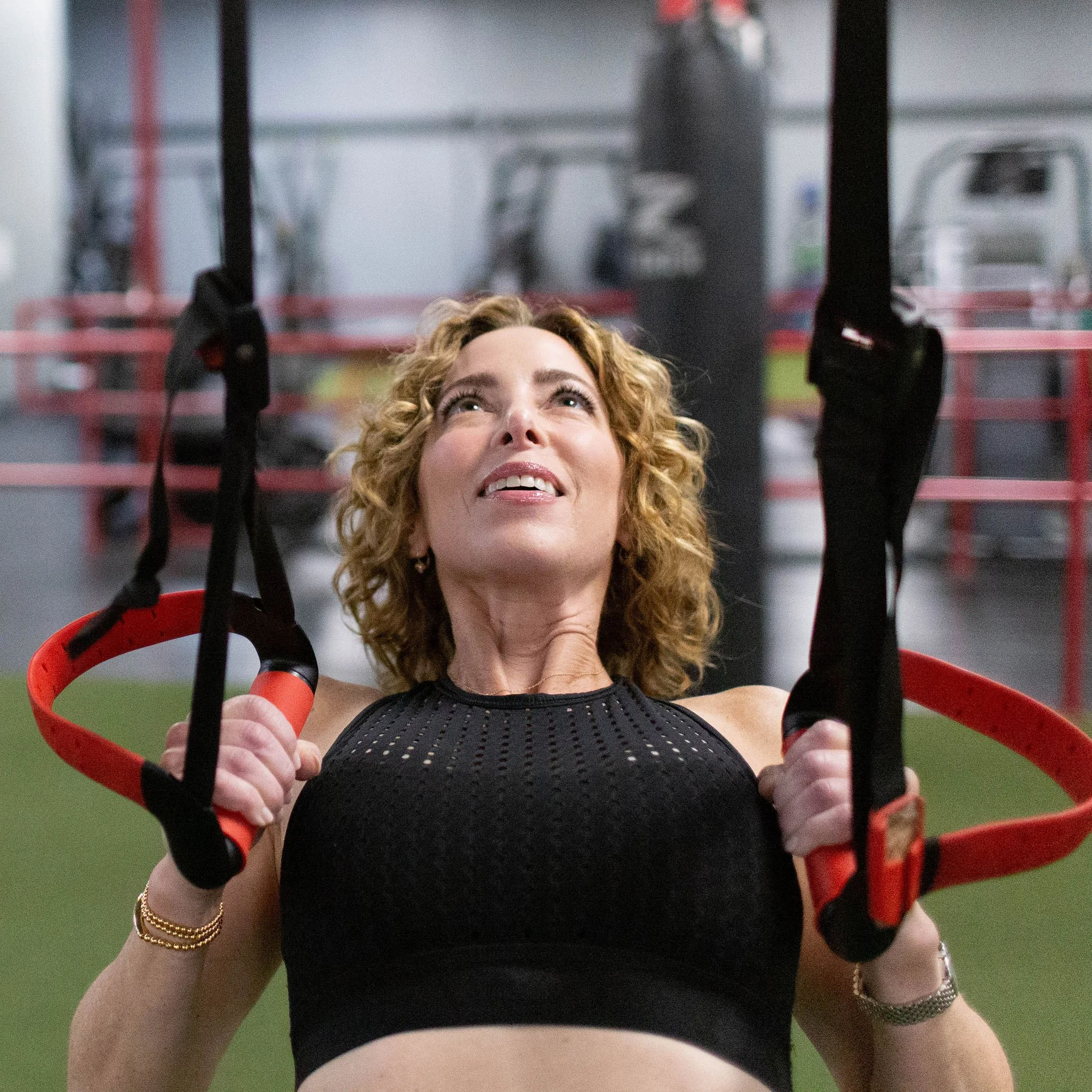Midlife women are hard at work creating new healthy habits and behavior changes. With the holidays upon us, distractions and barriers will present themselves. Use these 10 science-based strategies for behavior change to keep you on track during the holidays.
Read MoreDiscover how metabolic syndrome affects midlife women and what you can do to protect your health. Learn the key markers—waist size, blood sugar, blood pressure, cholesterol, and triglycerides—plus how hormonal shifts during menopause increase risk. Find out what happens in your body after a meal, why insulin resistance develops, and the lifestyle strategies that improve insulin sensitivity. Small changes in sleep, nutrition, movement, stress, and community can make a big difference for long-term heart, brain, and metabolic health.
Read MoreWomen with ADHD often face amplified symptoms during menopause, including brain fog, mood swings, and trouble focusing. Learn how evidence-based strategies like CBT, mindfulness, hormone therapy, and lifestyle changes can help manage symptoms and support well-being through midlife. Women find that working with a health coach on their healthy lifestyle is supportive and collaborative.
Read MoreMenopause affects libido, arousal, and vaginal health, but it doesn’t mean the end of a fulfilling sex life. This guide explores five ways to boost desire: balancing hormones, caring for vaginal health, practicing mindfulness, embracing masturbation, and using sexual wellness tools. With the right strategies, women can enhance intimacy, confidence, and pleasure well beyond menopause.
Read MoreAs women transition through menopause, hormonal decline can significantly impact midlife women’s health and well-being. While estrogen and progesterone are often in the spotlight in menopause discussions, testosterone plays a vital role in energy levels, muscle mass, cognitive function, and sexual health. Learn more about testosterone therapy for menopausal women in this latest blog post.
Read MoreAs estrogen levels decline during menopause, the balance of gut bacteria may be disrupted, leading to inflammation and digestive challenges, such as IBS, autoimmune disease, gas, bloating, constipation, and diarrhea. This imbalance, referred to as gut dysbiosis, not only affects digestion but can also contribute to issues like weight gain, fatigue, hair loss, skin issues, joint pain, sleep disturbances, and even mood swings due to the gut-brain connection. The gut plays an essential role in nutrient absorption, which is particularly important during menopause to maintain strong bones, energy levels, and overall health and well-being. Prioritizing gut health means that women can address many of the menopausal symptoms and improve their quality of life.
Read MoreDuring menopause, several hormones in the endocrine system play significant roles in regulating the various changes a woman's body undergoes. The endocrine system is a network of glands that produce and release hormones directly into the bloodstream to regulate various bodily functions. These hormones control essential processes such as metabolism, growth, reproduction, and mood. Major glands in the endocrine system include the pituitary gland, thyroid gland, adrenal glands, pancreas, and ovaries in women. The endocrine system operates through feedback loops, particularly the hypothalamic-pituitary axis (HPA-axis), ensuring that hormone levels remain balanced to maintain homeostasis. The endocrine system plays a crucial role in adapting the body to changes, such as during puberty, pregnancy, and menopause. To become your best self-advocate in and out of your physician’s office, learning more about your body is essential to optimal health. Here are some of the key hormones involved:
Read MoreGiving yourself grace during menopause can be a slippery slope of balancing the things you want to do and the things you are able to do at the moment. While menopausal women are learning more about how to move the dial during this transitional time in their life, they are often faced with physiological changes that inhibit their ability to do all the things. Daily exercise, including gentle movements, HIIT training, and weight resistance training are part of the equation to live independently for decades to come. Eating a whole-foods balanced diet is essential to gut, brain, and heart health. Prioritizing and working on deep, restorative sleep is connected to brain health, daily energy, and metabolic health. Staying grounded and not falling in to the abyss of overwhelm is the part that challenges most women. Learn how to calm the all-or-nothing mindset during menopause in this latest blog.
Read MoreNavigating menopause brings about various changes, including shifts in sexual health. Embracing a healthy lifestyle can significantly enhance sexual well-being during this stage. Regular physical exercise is a cornerstone, as it boosts energy, improves blood circulation, and elevates mood, all contributing to a healthier libido. A balanced diet rich in fruits, vegetables, lean proteins, and healthy fats is equally important. Foods high in Omega-3 fatty acids, like fish and flaxseeds, are particularly beneficial for maintaining hormonal balance and reducing inflammation.
Stress reduction is another crucial factor. Techniques such as mindfulness meditation, deep breathing exercises, and yoga can lower cortisol levels, leading to increased relaxation and improved sexual response. Open communication with a partner about sexual needs and changes can enhance intimacy and satisfaction. This honest dialogue helps address concerns and fosters a supportive environment.
Lastly, ensuring adequate sleep is vital. Establishing a regular sleep routine and creating a conducive sleep environment can help maintain hormonal balance and reduce stress, positively affecting sexual health. By integrating these non-hormonal strategies into daily life, menopausal women can improve their sexual health and overall well-being.
Read MorePost-menopause is a significant time for women to reassess their lifestyle choices to promote longevity and maintain a high quality of life. Women will be post-menopausal for a third of their life. While many women may still have symptoms to deal with, such as hot flashes, weight gain, low libido, genitourinary symptoms, and poor sleep, other women feel a sense of newfound freedom, calm, and confidence. Every woman’s journey is different yet all women need to consider lifestyle changes to support brain and heart health, metabolic health, bone health, strength, power, mobility, and restorative sleep. Learn about the top five recommended lifestyle changes, supported by scientific evidence.
Read MoreMenowashing refers to companies making misleading claims about their products being specifically beneficial for menopausal women without genuine or scientifically backed benefits. The Menopause business is booming right now, and with it comes a variety of new supplements, products, and services that are not science-backed with proven results. Meno-marketing is using midlife women’s fears to sell them a product or service that is not going to help them achieve their goals, but instead focusing on their various pain points, such as hair loss, weight gain, vaginal atrophy, painful sex, aging skin, and gut health. Learn how to look out for menowashing.
Read MoreHealth coaches often emphasize a holistic approach to wellness that encompasses various dimensions of health. There are five commonly recognized pillars of health that health coaches focus on to guide their clients toward a more balanced and healthy lifestyle during menopause - nutrition, exercise, sleep, stress management, and emotional and mental well-being. Learn how to master your menopause journey by partnering up with a certified health coach, building small actionable steps to creating a strong foundation from which to grow.
Read MorePrebiotic fiber is a type of non-digestible carbohydrate that fuels beneficial bacteria in the gut. When the good bacteria eat the prebiotic fuel, they produce short-chain fatty acids or postbiotics. These compounds aid in reducing your risk for chronic disease states, heal a leaky gut by closing the tight junctions of the epithelial layer, stabilize blood glucose levels, and strengthen your immune system. Including prebiotic-rich foods in your diet can help improve digestive health, and enhance the absorption of minerals.
Read MoreCreatine monohydrate is one of the most well-studied, safe, and beneficial supplements available to humans. Yet, many menopausal women squirm at the idea of supplementing with creatine in fear of gaining too much mass. Many midlife women find themselves struggling with weight gain during the menopausal transition and the thought of seeing the number on the scale go up, not down, is horrifying to them. When women think about taking creatine, they often think of their teen boys loading up gaining a lot of muscle mass and bulk, or bodybuilders in the gym lifting hundreds of pounds. This blog is going to break down the many benefits that creatine has for the menopausal woman in hopes that you can shift your mindset and give it a try.
Read More
















